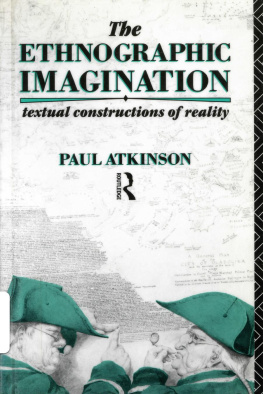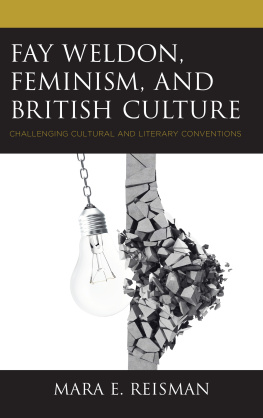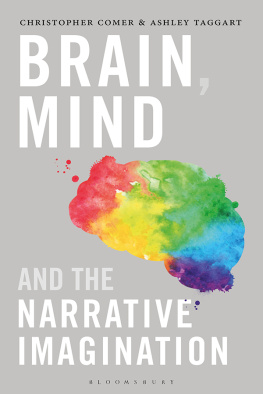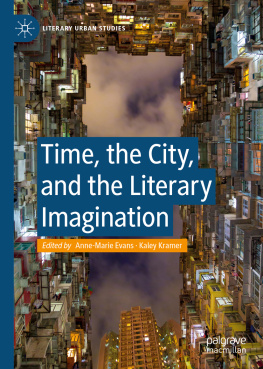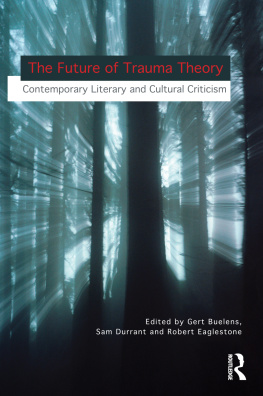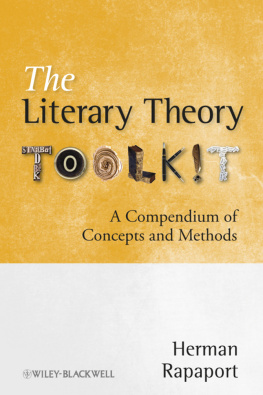Routledge Revivals
The Ethnographic Imagination
First published in 1990, The Ethnographic Imagination explores how sociologists use literary and rhetorical conventions to convey their findings and arguments, and to persuade their colleagues and students of the authenticity of their accounts. Looking at selected sociological texts in the light of contemporary social theory, the author analyses how their arguments are constructed and illustrated, and gives many new insights into the literary convention of realism and factual accounts.
The Ethnographic Imagination
Textual constructions of reality
Paul Atkinson

First published 1990
by Routledge
This edition first published in 2011 by Routledge
2 Park Square, Milton Park, Abingdon, Oxon, OX14 4RN
Simultaneously published in the USA and Canada
by Routledge
270 Madison Avenue, New York, N Y 10016
Routledge is an imprint of the Taylor & Francis Group, an informa business
1990 Paul Atkinson
All rights reserved. No part of this book may be reprinted or reproduced or utilised in any form or by any electronic, mechanical, or other means, now known or hereafter invented, including photocopying and recording, or in any information storage or retrieval system, without permission in writing from the publishers.
Publishers Note
The publisher has gone to great lengths to ensure the quality of this reprint but points out that some imperfections in the original copies may be apparent
Disclaimer
The publisher has made every effort to trace copyright holders and welcomes correspondence from those they have been unable to contact.
A Library of Congress record exists under LC Control Number: 89049330
ISBN 13: 978-0-415-61557-0 (hbk)
The Ethnographic Imagination
Social scientists are realizing more and more the extent to which the work of scientists in all disciplines is rhetorical, involving the persuasion of colleagues and students, and depending upon textual conventions. Sociological texts themselves are part of a set of traditions and conventions that are in turn part of our academic culture. The Ethnographic Imagination explains how one sociological tradition - the ethnographic - has been reflected and represented in its texts.
Paul Atkinson looks at selected sociological texts in the light of contemporary social theory and analyses how their arguments are constructed and illustrated. His discussion ranges widely, from classic ethnographies of the Chicago School up to contemporary monographs. Using a wealth of illustrations, he explores how ethnographic texts persuade their readers of the authenticity of their accounts; how they portray social actors as characters and types; and how they use narrative to convey social action, and to transmit implicit sociological theory.
Thorough and authoritative, The Ethnographic Imagination enables us to read sociological texts with new insight, based on a better understanding of how texts are constructed and how we read them. It will be required reading for all those interested in ethnographic research in sociology, anthropology, education, and the social sciences, and will also appeal to readers with an interest in the literary conventions of realism and factual accounts.
The Author
Paul Atkinson is Reader in Sociology and Head of the School of Social and Administrative Studies, University of Wales College of Cardiff. He is the author of The Clinical Experience, Ethnography: Principles in Practice (with Martyn Hammersley), and Language, Structure and Reproduction.
The Ethnographic Imagination
Textual constructions of reality
Paul Atkinson

First published 1990
by Routledge
11 New Fetter Lane, London EC4P 4EE
Simultaneously published in the USA and Canada
by Roudedge
a division of Routledge, Chapman and Hall, Inc.
29 West 35th Street, New York, NY 10001
1990 Paul Atkinson
Typeset by LaserScript Limited, Mitcham, Surrey
Printed and bound in Great Britain by Mackays of Chatham PLC, Kent
All rights reserved. No part of this book may be reprinted or reproduced or utilized in any form or by any electronic, mechanical, or other means, now known or hereafter invented, including photocopying and recording, or in any information storage or retrieval system, without permission in writing from the publishers.
British Library Cataloguing in Publication Data
Atkinson, Paul
The ethnographic imagination: textual constructions of reality.
1. Sociology. Methodology
I. Tide
301'.01'8
Library of Congress Cataloging in Publicat ion Data
Atkinson, Paul
The ethnographic imagination: textual constructions of reality/ Paul Atkinson,
p. cm.
Includes bibliographical references.
1. Ethnology-Authorship. I. Title.
| GN307.7.A85 1990 | 8949330 |
| 305.8dc20 | CIP |
ISBN 0-415-05025-1
ISBN 0-415-01761-0 (pbk)
Contents
This book is an unusual contribution to sociology. It is not a methods book, nor a theory book, nor yet the report of a research project. It bears on all three, but because its subject-matter is relatively unfamiliar, this preface is intended to help the reader come to grips with it Sociologists are not usually introspective, or self-conscious about what they read and write: they often lack the vocabulary required to reflect on their texts. In an earlier methods book (Hammersley and Atkinson 1983) the argument was put forward that sociologists need to be self-consciously aware of what they are doing throughout the entire research process - from formulating a topic to completing the final report This volume is a logical extension of that argument, focused on two aspects of sociology: how we read and how we write.
The idea behind this book is that sociologists should be more critically aware of how sociological texts are constructed by their authors. Books and articles do not just appear; they are the result of work undertaken by their authors. They are part of a set of traditions and conventions that are themselves part of our academic culture. This book is a detailed examination of how one sociological tradition - the ethnographic - has been reflected and represented in its texts. Once we understand more about how texts are constructed, and how we make sense of them when we read them, our whole appreciation of those texts is enhanced. We read with new insight. It is also possible that our own sociological writing may become more skilful and more persuasive, although that is not the prime purpose of the approach adopted here.
The reader may benefit from some guidance in approaching this book. For those with little or no acquaintance with the subject or the approach, the Introduction may seem rather dense and irksome. There I try to establish the nature of my self-appointed task. That very first chapter does not, therefore, present any worked examples of sociological texts, The reader who wishes to sample the analysis in action is therefore recommended to dip into one of the subsequent chapters and to return via the Introduction subsequently.
The completion of this book has been delayed by a number of circumstances, few of which seemed to be under my control at the time. Along the way, however, it has been helped by a number of people. I had the opportunity to reflect on the subject of the book while holding a visiting appointment at the University of California, Davis. There I taught a graduate seminar on The Poetics of Sociology, and I learned a great deal from the seminar members. In particular I wish to thank Bob Bunger, Karen Joe and Marilyn Reynolds: some of the material we worked on together appears from time to time in the course of the book. I am also grateful to all my friends and colleagues at Davis who helped to make my stay there such a productive one. If I single out John and Lyn Lofland, Andy Hiken, Debbie Paterniti and Patty Robinson, then I hope that the many others I remember with affection will not feel slighted.

